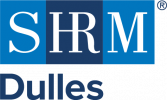Event Details
The Balanced Scorecard
| Date: | February 20, 2019, 5:30pm |
| Location: | Holiday Inn Dulles Airport 45425 Holiday Dr. Sterling, VA 20166 |
| Price: | $35.00 Member, $55.00 Non-Member, $25.00 Member in Transition |
| Event Type: | Chapter Meeting - Dinner |
| iCal link | Add to Calendar |
Meeting Cancelled Due to Pending Inclement Weather
THE BALANCED SCORECARD
The Balanced Scorecard was developed in the 1990s at the Harvard Business School by Robert Kaplan and David Norton. Kaplan and Norton identified that many companies managed their businesses based solely on financial measures. Though financial measures are necessary, they can only report what has happened in the past — where a business has been, but not where it is headed. Being overly focused on short-term financial results leads to neglecting activities needed to position them for continued success. Kaplan and Norton developed the Balanced Scorecard to help Boards ensure that adequate effort was also spent focused on activities that set organizations up to achieve their strategic objectives.
This workshop will equip HR leaders to create a balanced scorecard for their areas of responsibility and to be able to articulate to leadership how their activities and results contribute to attainment of organizational objectives.
Customer - How HR’s services meet the needs and expectations of employees, managers, candidates, and other stakeholders. This may include engagement survey results, turnover, exit survey results, achievement of Best-Place-to-Work goals, and other indicators.
Financial - How HR’s costs compare to their budget, industry standards, and their own past performance. Examples include cost-to-fill open positions, recruiting cost per hire, benefit cost per employee, HR salary expense per employee, etc. The organization may also ask HR to help track organization-wide indicators such as revenue per employee.
Internal Business Process - How HR increases efficiency by streamlining and automating processes as well as managing functions in their area of responsibility. Metrics may include percent of HR processes that are automated, percent of performance reviews completed on time, average days-to-fill vacancies, payroll errors per pay period, etc.
Knowledge Growth - How well HR supports building overall talent and competence in the organization. Metrics may include percentage of open positions filled by internal candidates, contractor cost as a percent of salary expense, units of work per labor hour, or other key indicators such as percent of employees who attain various certifications. One department would not track all of these indicators. Instead they would select indicators that impact the strategic objectives - normally two to four for each of the four perspectives.
Learning objectives of session:
- Participants will have the tools and information they need to prepare a Balanced Scorecard for the Human Resources function.
- Participants will be able to coach managers create metrics that go beyond the financial results and include indicators that position the organization for future success.
This presentation has been approved for 1 SHRM credit and 1 Business credit from HRCI.
Dinner Agenda:
5:30: Networking
5:50: Announcements/Dinner
6:15: Program
7:15: Closing Remarks/Raffles
About the speaker:
Thank you to ROCS Staffing for sponsoring our February meeting!
ROCS Staffing
2355 Dulles Corner Blvd, Ste 650
Herndon, VA 20171
rocsjobs.com





